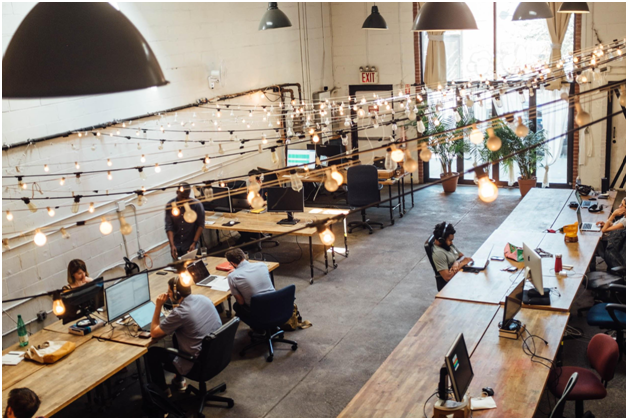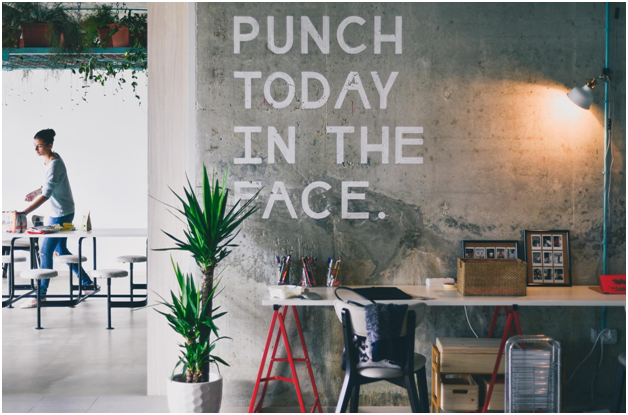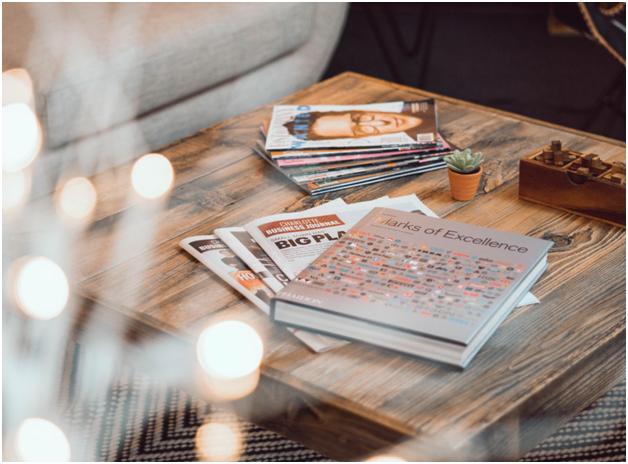There’s more to office branding than just having a reflection of your office and logo across departments. Think of your office as something that has its own personality. Its interior design must be in line with the company culture and branding, not only to attract potential customers but also to keep the entire workforce motivated in living the company’s ethos.
Whether it’s letting the whole world know that you care about the environment or embracing innovation, your interior design should tell a story about your brand’s culture and values. Enhance your office space with an office layout and design with the following ideas and tips to achieve a better workflow.
Freshen Up the Walls
Nothing changes the mood of the space better than a fresh coat of paint does. With the right colors, it can have a positive psychological impact on people, causing them to be happier or more creative.
If the company’s brand colors are too distracting, consider the nature of your business instead. Don’t worsen the high-pressure environment with intense colors or hamper the creative nature of the office with bland-colored walls. If innovation is at the heart of your brand, white walls with minimal patterns here and there will suffice.
Hang Team Photos or Artwork
Making the workplace feel like home does more good than harm, and one doesn’t have to do drastic changes to do so. Turn good times with the team into memories and feel-good reminders by hanging team photos in the office. This may also prompt workers to create more happy memories with one another.
Instead of bombarding employees with the company’s vision and mission, inspirational quotes placed within an artwork can be a subtle reminder of the company’s values.
Make Entryways Welcoming
Like covers in books or landing pages on websites, the office entrance creates an impression that affects not only guests but also the employees who come through those doors daily. The entrance or the office lobby is the starting point for customer-employee relationships; make sure you leave a good impression.
Make it inviting through unique yet comfortable furniture and pieces reflective of the company’s culture. Training front-desk staff to exude a positive personality gives off the message that clients can trust the company.
Prepare Employee Welcome Kits
Nothing instills a company’s brand to new employees better than an employee welcome kit. A customized welcome kit helps them develop a sense of belonging and understanding of the company’s culture that otherwise might take a while to cultivate.
Welcome kits should be more than just official documents and office supplies, opt to include branded clothing items, electronic passes to facilities, and fun items such as mugs and stickers. Put them all in a carefully crafted box. Its design should reflect your brand well so consider unique boxes with custom tissue papers for an added flair. These are introductions and first impressions to your brand after all.
Invest in Books
Bookshelves are an important yet underrated element for office spaces. Even if people live in the digital age, books still hold power in showcasing knowledge, especially in interior design. You don’t need a designated library to incorporate this design element.
Curate book titles that relate to your company’s purpose, and encourage productive/creative thinking. Books make good conversation pieces; make books accessible by stacking two or three books on the coffee table or having a mini bookshelf in the office’s common areas.
Evolve by Keeping the Team Involved
The company’s brand is more than just the logo or mission statements; it’s about its people too. Talk to different stakeholders, from upper management to rank-and-file employees when it comes to their needs in the workplace. Encourage the team to integrate elements that keep them motivated, and understand what their needs are and how they work.
An office with good branding should support productivity and inspiration for the work being done. Being considerate of different needs or people and departments can bring a lot of benefits to the office environment and the brand.


